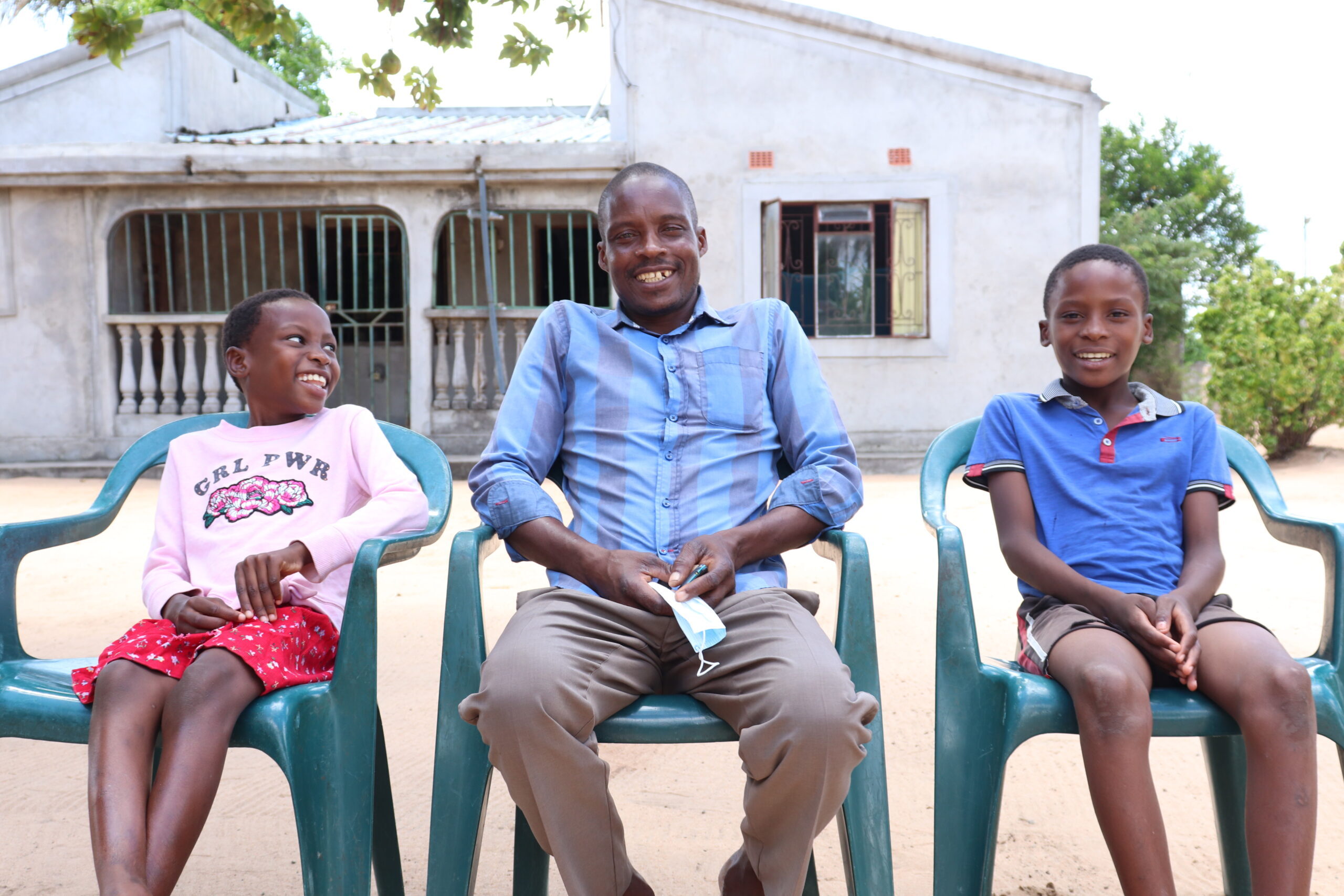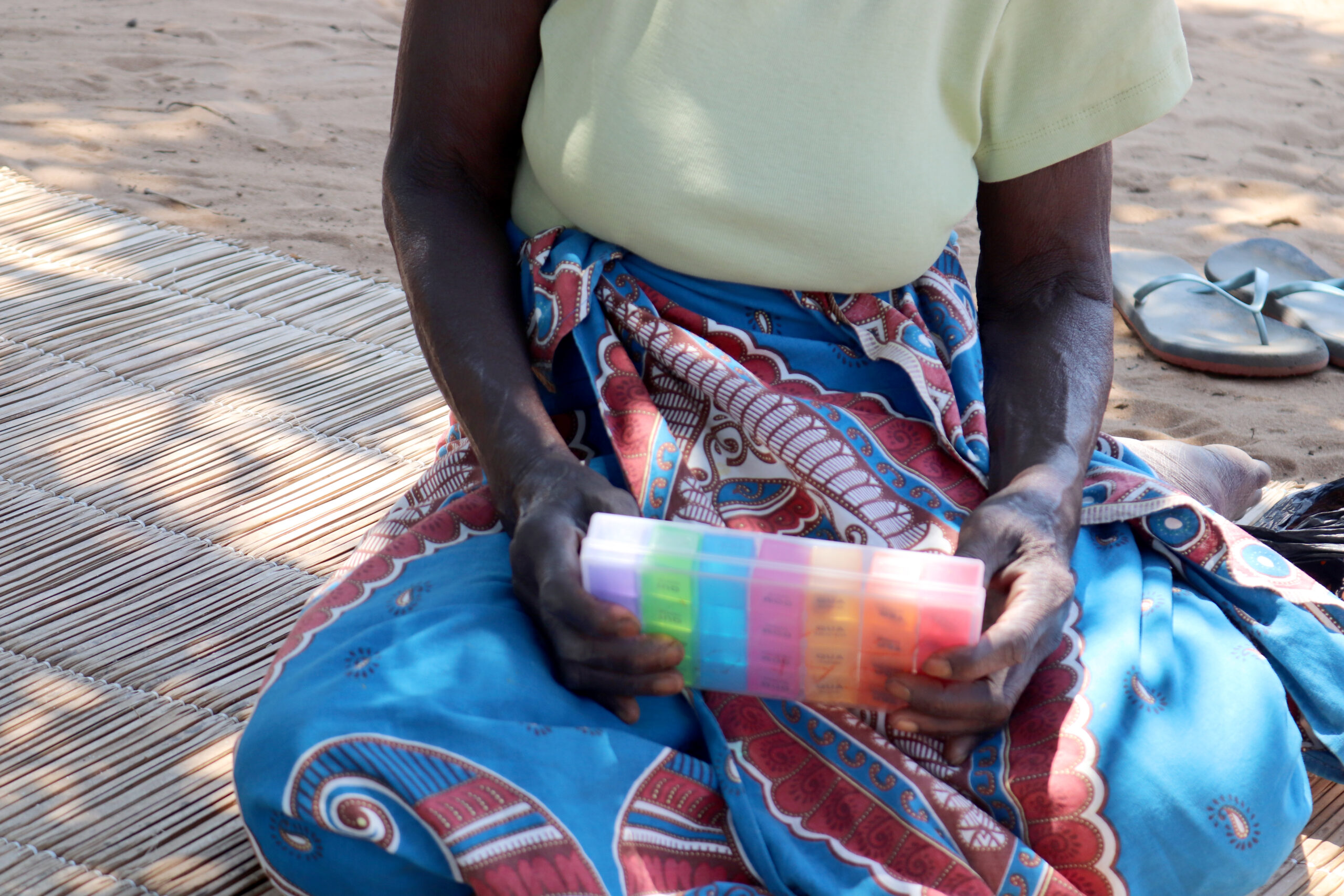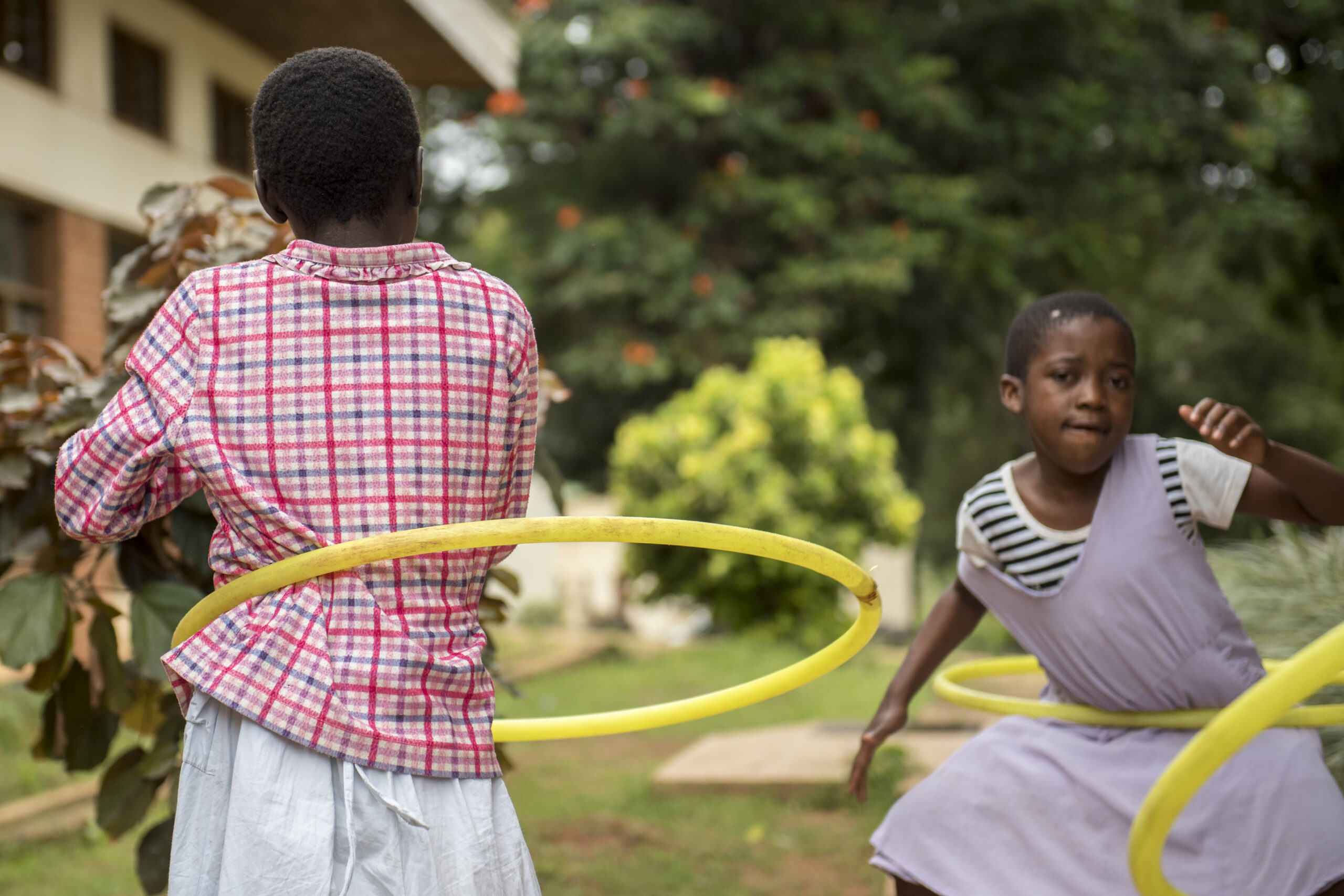
António Cossa, 49, is a single father of four children: two adult women, and a 10-year-old boy and an 8-year-old girl, with whom he lives in Macia, a village in the Gaza province of Mozambique. For years he was a prosperous and happy man when he worked in the mines of South Africa where he earned 13,000 Rand (about $800) per month. With that salary, he bought a car and built a house in Macia, which he would return to frequently to spend time with his wife and children. Cossa led a quiet and hassle-free life until 2016, when he was diagnosed with tuberculosis and HIV at the clinic of the mining company where he worked.
Before being diagnosed, he got very sick, but he did not know exactly what he was suffering from.
“I had diarrhea, I foamed at the mouth, I couldn’t walk, I passed out frequently, and I coughed a lot,” says Cossa.
He recalls returning from the South African mines in October 2015 and seeing strange medicines in his house. Cossa asked his wife, the mother of his two youngest children, about the medicine, and she said they were pills for the nephew who also lived with them. He later found out that the pills were antiretroviral (ARVs), medication used to treat HIV. He still does not know the extent of the impact of HIV in his household.

“When I arrived in South Africa in January 2016, I got sick,” says Cossa “I went to the clinic, and they gave me cough treatment. As my health did not improve, in December of the same year I returned to the clinic and was diagnosed with tuberculosis. Then I took the HIV test. it was positive, and I started taking ARVs.”
Desperate with the disease, his wife advised him to seek a traditional healer, and he accepted. The healer charged 25,000 Mozambican Meticais (~ $650) for each session.
”She came three times and we paid [about $2,000]. In addition to the treatment, we paid for transport because she came from Maputo, the capital,” says Cossa, visibly frustrated. “The woman said that she cured HIV. For the treatment to be successful, she demanded that we stop taking ARVs. The last time she arrived, she charged [another $1,200]. In addition to the money, she asked for a goat and 12 chickens.”
Despite having abandoned his ARVs, Cossa felt healthy for several years. Then in 2020, he started to experience the same symptoms as in 2016 and was afraid to go to the hospital. The disease worsened, and he eventually gained the courage to go to the hospital to get help. A community counselor welcomed him at the Macia Health Center and enrolled him in care and treatment.
“During the relapse, my wife abandoned me and our children, returning to her parents’ house,” says Cossa. “With the help of the community counselors, I went back on antiretroviral treatment (ART), and I now feel good.” Inspired by his story of perseverance and overcoming misinformation, EGPAF invited Cossa to be part of the male champions group.
“As a male champion I go to the community leader in search of those who have stopped coming in for any number of reasons and are no longer on treatment,” says Cossa. “I also visit patients to remind them about treatment and to pick up their medicine. But often we can’t find them because they give the wrong addresses. People are afraid of stigma and discrimination. Even to pick up the medicines at the hospital, they send their children or wives.” Cossa is the only male champion in his neighborhood. He uses his story to help other men prevent HIV transmission and adhere to treatment.
“I like my job as a male champion because we’ve already won [the battle against HIV]. We are not afraid. We do not hide that we are HIV positive, and we help others.”

“I like my job as a male champion because we’ve already won [the battle against HIV]. We are not afraid. We do not hide that we are HIV positive, and we help others.”
As someone who has overcome HIV-related illness and stigma, Cossa now focuses on raising his two youngest children. His dream is to educate his two children and see them grow up in an AIDS-free society. He would also like to look for a job in South Africa again, but fatherhood has been his priority, and as the sole caregiver of his children, returning to the mines has not been an option.
On HIV/AIDS, he says he now understands that the disease has no cure. It has only treatment. The most important thing, according to Cossa, is to adhere to the medication intake schedule. Even when he finds an odd job, he takes the pills with him so he does not miss the time to take them.
“We didn’t know that HIV has no cure, so we fell for the healer’s lie, and I almost died. Since I went back on the ARTs, I never got sick. When I went for the last test it was undetectable. Then I received a message by phone congratulating me on that,” says Cossa, with satisfaction.
The Community Counselor initiative is led by the Elizabeth Glaser Pediatric AIDS Foundation (EGPAF) in Gaza Province through the ALCANÇART project—funded by the US President’s Emergency Plan for AIDS Relief (PEPFAR) through the U.S. Centers for Disease Control and Prevention (CDC). Community counselors carry out testing activities for HIV index cases provided by the health facility based on EGPAF’s technical recommendations. Index testing involves testing household members of people who test positive. The counselors also carry out screening activities for other diseases in the community, with a focus on those affected by HIV. In addition, they make preventive visits to people living with HIV during the first three months after they start ART, ensuring that all HIV patients are linked to care and treatment.




